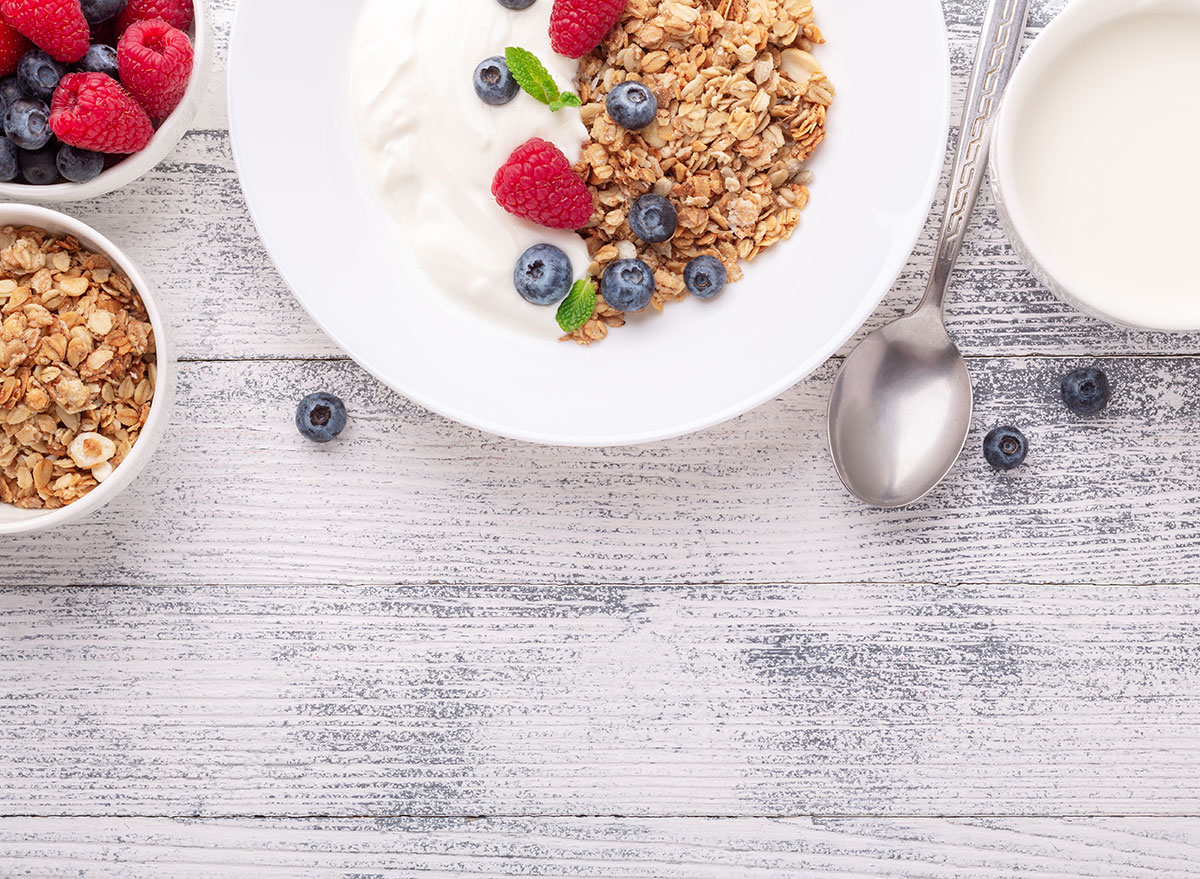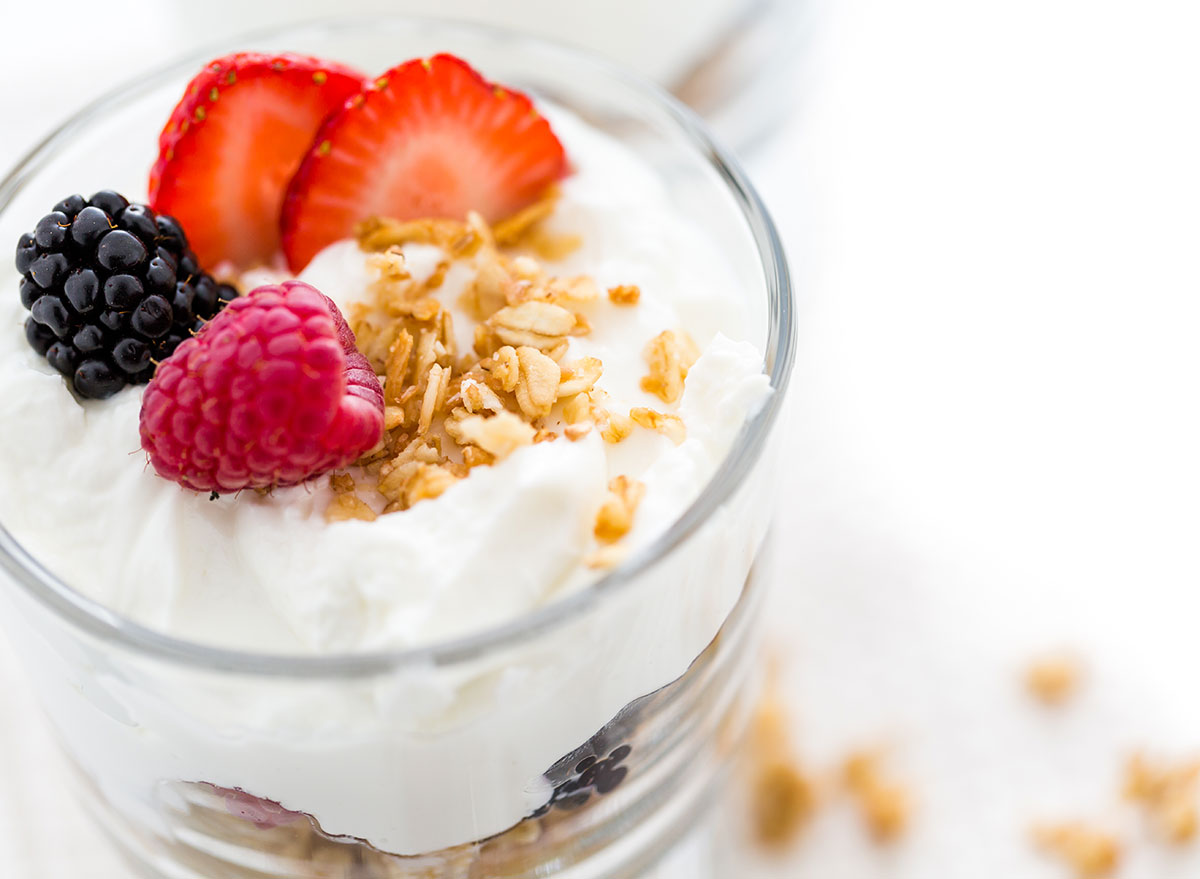One Surprising Effect of Eating Yogurt, New Study Suggests

If you're hoping to celebrate your birthday for decades to come, try listening to your gut. According to a research team led by investigators from the Keio University School of Medicine in Tokyo, centenarians—those who reach the age of 100—appear to have a special type of gut bacteria that may contribute to longevity.
The study authors analyzed the gut microbiome in 160 adults with an average age of 107. After comparing the gut flora of the members in this group to the gut flora of other participants (112 adults between the ages of 85 to 89, as well as 47 adults ages 21 to 55), the researchers learned those with a three-digit age possessed a distinct set of microbiota that generated unique secondary bile acids that were not present in the younger volunteers. For context, the unique secondary bile acids make up a type of digestive fluid produced by the liver and transported into the intestines, and modified by bacteria enzymes.
In fact, there were high levels of one specific secondary bile acid: Isoallolithocholic acid or isoalloLCA. Since the authors were unaware of the process that produced this substance, they dug deeper—and discovered it belongs to a family of bacteria called Odoribacteraceae. Furthermore, the study, which was published in the journal Nature, states that isoalloLCA was found to have "potent antimicrobial effects" (meaning it can slow down or stop the growth of "bad" gut bacteria that are resistant to drugs).
Interestingly enough, exactly how the centenarians developed this "special" bacteria remains a mystery, yet the authors speculate if diet and genetics play a role.

"These findings are not surprising as we know that the microbiome is a major part of one's immune system," says Julie Upton, MS, RD, founding partner of the nutrition marketing and communications firm AFH Consulting. "So if your microbiome is healthy, one would expect a more robust immune system—and a healthy immune system could be linked to a longer life."
Consuming more probiotic foods can nourish the trillions of microorganisms in the gut and may boost digestion, as well as help improve certain health conditions (including diarrhea, obesity, and irritable bowel syndrome) according to the National Institutes of Health. Fermented food favorites—such as Greek yogurt (be sure to check the nutrition label for the term "live active cultures"), kefir, kombucha, and sauerkraut—can feed your gastrointestinal tract with various strains of gut-friendly bacteria.
Upton believes this groundbreaking research holds promise for the future. "This is the first I've heard of this specific type of bacteria, but I'm sure there will be new findings that also identify other bacteria linked to positive health outcomes."
Scientists plan on looking further into this possible life-extending relationship between gut flora and healthy aging. One member of the research team, Ramnik Xavier from The Broad Institute of MIT and Harvard, is hoping their efforts will open the door for new treatments. "Our collaborative work shows that future studies focusing on microbial enzymes and metabolites can potentially help us identify starting points for therapeutics," he stated in a press release.
For more healthy living news delivered straight to your inbox, sign up for our newsletter and don't miss What Happens To Your Body When You Start Taking Probiotics.








